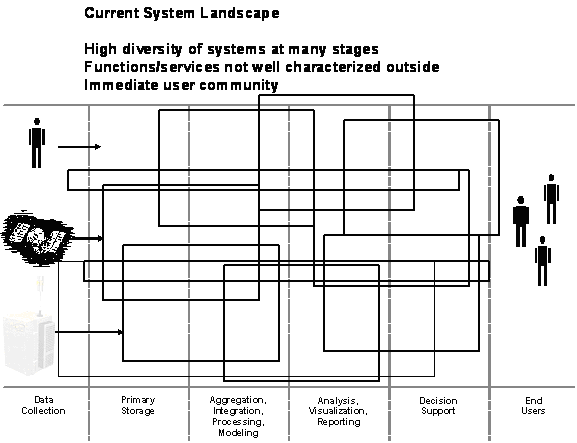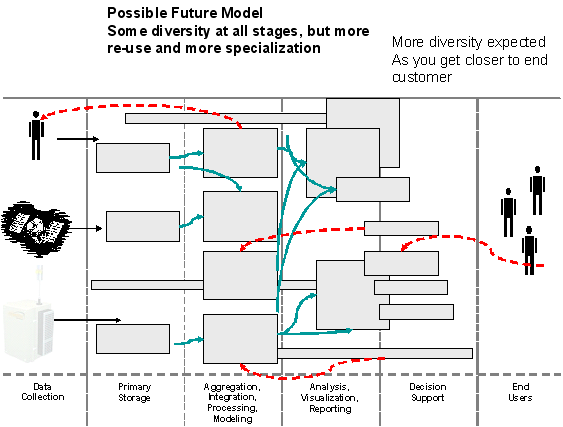Data Systems Architecture
Back to < Community Air Quality Data Systems Strategy
Data Systems Architecture
Chapter text here.
Comments from Data Summit Workshop
Assumptions about the current constellation of systems
Our current constellation of systems is not well characterized. There is significant overlap in systems performing identical functions. Some of this is healthy diversity and some of redundancy. We do not always know which is which. This is depicted in Fig 2.

Figure 2 Current System Landscape
Figure 3 sketches the opportunity space (see Rudy’s diagrams with same concept) we are discussing:

Figure 3
Key attributes of this picture are:
- Fewer (but not zero) overlaps of functionality at the “data” side of the value chain. Duplications that exist are known to the community. They can serve many functions: collaboration, competition, innovation, etc.
- Greater diversity of applications (or “virtual applications) as one gets closer to the user.
- Standard (blue line) interconnections between systems, these interconnections are, as far as possible standardized across the chain, and lower the overhead of connection
- Improved feedback (red dashed lines) through purposeful design of “community”. Some institutional methods to support improved communication back to upstream partners.
The opportunity space identified requires design. Under the current set of incentives and guidance’s it will probably not reach critical mass. Under a different set of incentives and guidance’s there is great potential for it to be built/evolved/grown.